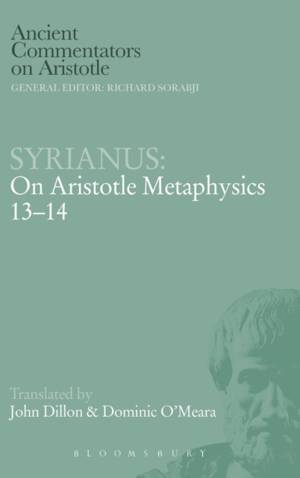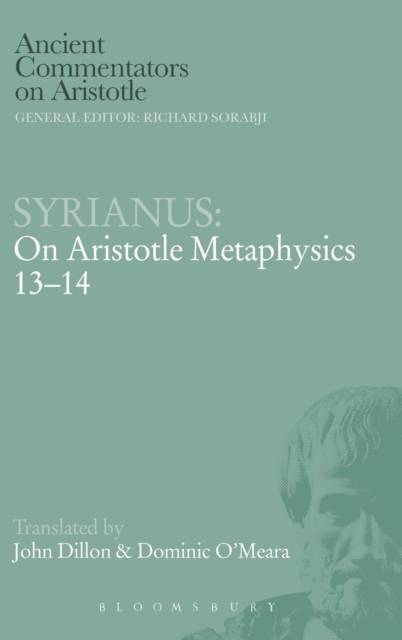
- Afhalen na 1 uur in een winkel met voorraad
- Gratis thuislevering in België vanaf € 30
- Ruim aanbod met 7 miljoen producten
- Afhalen na 1 uur in een winkel met voorraad
- Gratis thuislevering in België vanaf € 30
- Ruim aanbod met 7 miljoen producten
Zoeken
Omschrijving
Until the launch of this series in 1985, the 15,000 volumes of the ancient Greek commentators on Aristotle, written mainly between 200 and 600 AD, constituted the largest corpus of extant Greek philosophical writings not translated into English or other European languages.
Syrianus, originally from Alexandria, moved to Athens and became the head of the Academy there after the death of Plutarch of Athens. Syrianus attacked Aristotle in his commentary on Books 13 and 14 of the Metaphysics, just as his pupil Proclus was to do later in his commentaries on Plato. This is because in Metaphysics 13-14, Aristotle himself was being thoroughly polemical towards Platonism, in particular against the Academic doctrine of Form-numbers and the whole concept of separable number. In reply, Syrianus gives an account of mathematical number and of geometrical entities, and of how all of these are processed in the mind, which was to influence Proclus and all subsequent Neoplatonists.
Syrianus, originally from Alexandria, moved to Athens and became the head of the Academy there after the death of Plutarch of Athens. Syrianus attacked Aristotle in his commentary on Books 13 and 14 of the Metaphysics, just as his pupil Proclus was to do later in his commentaries on Plato. This is because in Metaphysics 13-14, Aristotle himself was being thoroughly polemical towards Platonism, in particular against the Academic doctrine of Form-numbers and the whole concept of separable number. In reply, Syrianus gives an account of mathematical number and of geometrical entities, and of how all of these are processed in the mind, which was to influence Proclus and all subsequent Neoplatonists.
Specificaties
Betrokkenen
- Auteur(s):
- Vertaler(s):
- Uitgeverij:
Inhoud
- Aantal bladzijden:
- 250
- Taal:
- Engels
- Reeks:
Eigenschappen
- Productcode (EAN):
- 9780715635742
- Verschijningsdatum:
- 25/01/2007
- Uitvoering:
- Hardcover
- Formaat:
- Genaaid
- Afmetingen:
- 156 mm x 234 mm
- Gewicht:
- 526 g

Alleen bij Standaard Boekhandel
+ 279 punten op je klantenkaart van Standaard Boekhandel
Beoordelingen
We publiceren alleen reviews die voldoen aan de voorwaarden voor reviews. Bekijk onze voorwaarden voor reviews.











